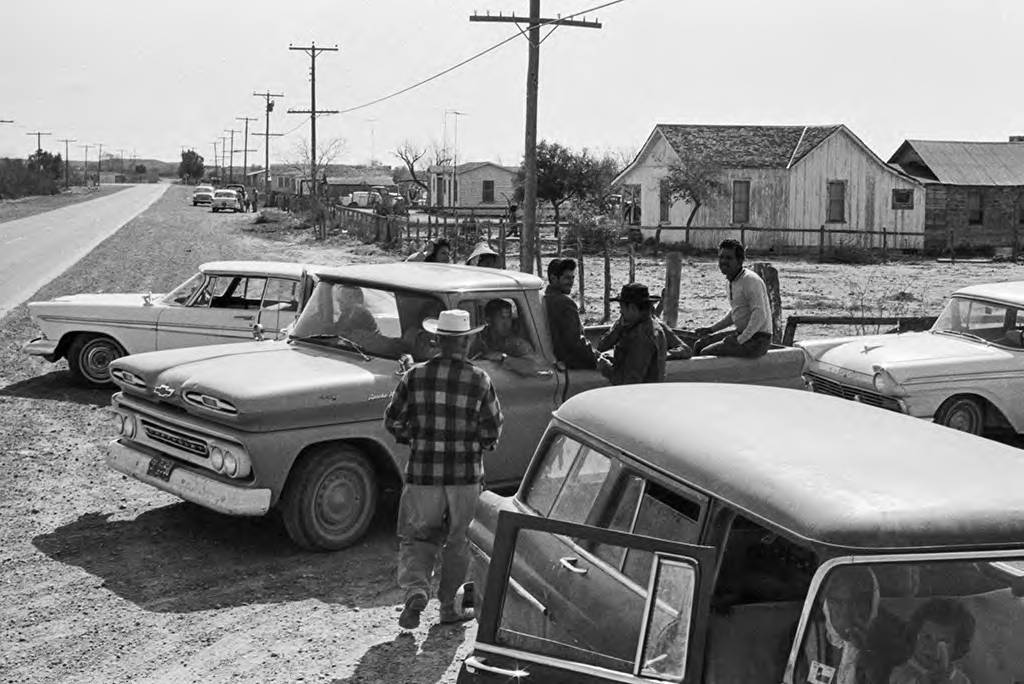Antonio “Tony” Orendáin
Antonio “Tony” Orendáin
Tony Orendáin visiting from Texas, Delano, 1967. Photo by Emmon Clarke.
Tony Orendáin and an unidentified man eat together, Delano, 1967. Photo by Emmon Clarke.
In May 1966, he traveled to El Paso, Texas, to picket the Chamizal Labor Agency that was providing strikebreakers to farms in Delano. Following his success in convincing strikebreakers to join the strike, Chávez asked him to remain there to help Eugene Nelson in the strike against local melon growers in South Texas. Orendáin, Nelson, and Bill Chandler organized a protest against workers coming from Mexico and blocked their passage on the bridge of Rome, which ended with their arrest and led to a nonviolent hunger strike.
The union announced a national boycott of all products from La Casita Farms, one of the main agri-businesses. Padilla and Jim Drake were sent from Delano to help organize but after nine months of striking, the union in Texas had accomplished very little. In February of 1968, Chávez Anneounced a 25-day fast to underline the nonviolent nature of the movement and strengthen public opinion in the union’s favor, but Orendáin, who could not accept the religious nature of the fast and thought it would be detrimental to the union’s goals, boycotted the fast and refused to attend the mass when it ended.
Tony Orendáin and Pedro Ríos organizing a picket, Río Grande City, Texas, 1967
Photographer Emmon Clarke spent some time in Texas, documenting the activities of Texas farmworkers, organizers from Texas, and organizers sent to Starr County by the National Farm Workers Association from California. Texas melon pickers started their strike on June 1, 1966, demanding higher wages. Wages were often as low as 40-60 cents an hour. Following the successful march from Delano to Sacramento of Spring that year, workers in Texas organized a 400-mile march from Rio Grande City to Austin from July 4 to Labor Day, September 5, 1966. La Casita Farms, the largest melon grower, raised wages from 85 cents to $1.00 but refused to meet the workers’ demands for $1.25 and a contract recognizing their union.
Tony Orendáin and Franklin García visiting the El Malcriado office, Delano, 1967. Photo by Emmon Clarke.
Tom & Ethel Bradley Center
California State University, Northridge
18111 Nordhoff Street, Northridge, CA 91330
Phone: (818) 677-1200 / Contact Us


